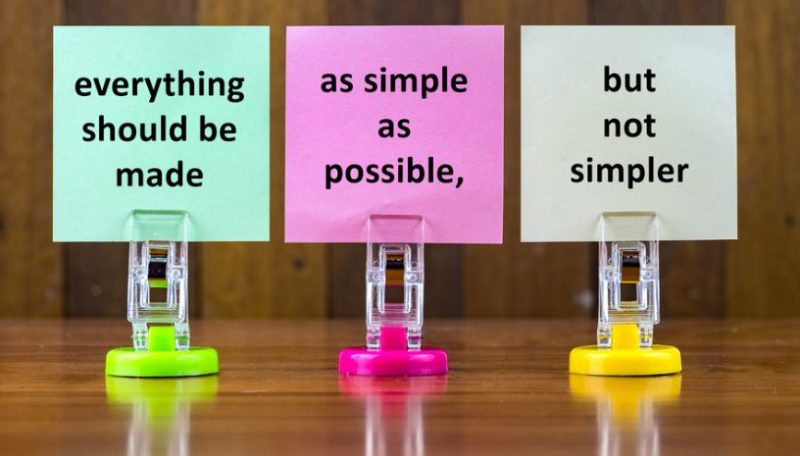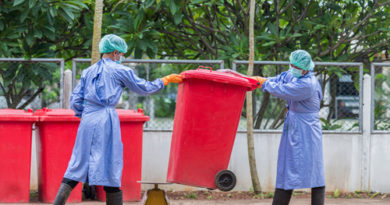Making sense of the sustainability debate. Key terms you should know.
 Remember this
Remember this
Ever since the IPCC , or the Intergovernmental Panel on Climate Change released its latest report on climate change, or more precisely the need to do much more to prevent a climate driven catastrophe, there has been the usual invasion of jargon, like for all such specialised fields. The climate change sector, to be fair to it, has usually kept it simple, keeping in with its objective of making it understandable to as wide a section of the populace as possible. But that hasn’t stopped the odd word or phrase from slipping in. We look at 5 of the most common ones, to ensure you never feel out of a climate change conversation, or at least until the next piece of jargon takes birth.
a) SDG’s, or the Sustainable Develpment Goals: Trust us, you will read, hear, and see a lot more about the SDG’s now. So just what are the SDG’s? Quite simply, these are a set of 17 goals, outlined by the United Nations in 2015 for the world at large, hence, also called the global goals. The SDG’s cover as wide a canvas as you can imagine, covering the eradication of poverty, hunger, climate action, gender equality and 13 other noble pursuits. The SDG’s, formally adopted in 2030, are supposed to guide the UN right up to 2030, so don’t be surprised if you see them mentioned a lot more wherever the UN is involved. Or vice versa.
b) The Circular Economy: Following closely is this strange description for some, usually used for an economy where quite simply, nothing goes to waste, including waste itself. Thus, it is an economy that is designed to extract value from every piece of output, including what was hitherto considered waste. A good example is creating bio fuels from sugarcane waste, or energy from urban waste. Also covered somewhat by cradle-to-cradle, a design protocol that’s all about the elimination of waste by recycling a material or product into a new or similar product at the end of its life cycle, rather than disposing of it. A Diamond from your ashes? Yup, this covers it, although the energy required to create the diamond will need a set off or carbon offset even.
c) Greenwashing: A term you better get used to, as you will be seeing a lot more of it. Like its namesake whitewashing, greenwashing usually refers to a firm covering up its environmental shortcomings by showing allegedly eco-friendly work done elsewhere. So a mining firm that helps maintain a playground? And brags about it? Yes, a pretty sad example of green washing. Other examples will abound, especially with the new rash of firms pledging to go green, by using more renewable energy, or using less plastics, or conserving resources. Keep an eye out for work that is adding no profits, or is simply a cost, and is good for the environment. We bet you will have a hard time doing it. Of course, with so much pressure to do more, some of the biggest culprits also run the risk of falling victim to greenmail. Yes, you guessed it, being forced to cover up for crimes against the environment, involving a payment or a make good somewhere else.
d) Environmental Impact Areas: This usually refers to the many aspects one looks at, when considering the environmental impact of a firm, product or even an individual. Energy consumption, greenhouse gas (production, toxicity and natural resources depletion are some of the key environmental impact areas. A related term is carbon footprint, which refers to the amount of carbon equivalent from the sum total of all the activities by an individual or an organisation. Thus, if you are a global traveller, proud of logging air miles, driving huge diesel cars and staying at 5 Stars without a care? Yes, you bet you will have a high carbon footprint.
e) Triple Bottom line: The triple here refers to people, planet and profit. No prizes for guessing just what has led us to our present predicament. The idea here is to make the relevance of your environmental impact, besides social equity as important as your bottomline of profits. Perhaps the toughest challenge for sustainability to take root, now finally being accepted as a real issue. The idea of the Universal basic Income, comes somewhat out of here.
That, is by no means an exhaustive list of the terms you need to understand. But if you have been a regular reader at Iamrenew, we can promise you that it won’t be long before you are right on top of the sustainability debate. Until then, we wish you a carbon neutral life:)




